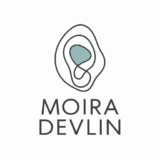How do you think creatively?
There is nothing more magical and iconic than a Disney movie. Everyone has their favourites from childhood where we learned every word and song verbatim!
Each Disney movie has a relatable storyline with a strong ethical message and they deliver it with phenomenal attention to detail and highest quality imaginary and graphics.
The Disney creativity strategy (Dilts 1995)1 is about developing your dreams and giving them the best possible chance of becoming reality.
They named it after Walt Disney, who often took on three different roles when his team was developing an idea – the dreamer, the realist and the critic.
The strategy separates out these three vital roles involved in translating creative ideas into reality.
This means they can be explored for maximum clarity and effect.
The usual way to use it is to allocate three roles to different people (dreamer, realist and critic) to assess ideas, plans or tasks.
- Dreamer – The first person comes up with all the possibilities of the idea.
- Realist – The next person takes these ideas and looks at what it would involve putting the idea into practice.
- Critic – The last person evaluates its strengths and weaknesses.
Sometimes roles are rotated to gather as many perspectives as possible.
You can even use this in a team environment broken down into three stages. It successfully gets everyone brainstorming. So as to create and share thoughts and ideas.
After creating ideas, then gets people thinking about what would have to happen in practical terms. Finally, they evaluate the possibilities.
Of course, the technique still works if you want to do it on your own.
If doing it on your own, be sure to keep the roles very separate in your mind as you work through the process.
Making You More Creative
Many great things have started as a simple, creative idea. Creativity is about giving, so consider donating some of your best ideas to help others. The more creative you are, the more ideas you will create.
Make an empty space in any corner of your mind, and creativity will instantly fill it.”
Dee Hock 2
Everyone can be creative, but they have to start somewhere which feels right. The creative process will then become more natural.
Consider the following to help you on your creative journey.
Record your ideas at the moment they occur.
It is important you record your ideas. Ideas can appear at the most inconvenient times. So maybe record and make notes on your phone or tablet.
Choose what will work best for you though and make sure you have a way to record your ideas at all times. You never know when an important idea will surface.
Don’t limit yourself to ideas that seem possible. Capture all of your ideas. Even those impossible to implement are still important for a couple of reasons.
First, what seems impossible to you may not be impossible in the future or for someone else.
Second, impossible ideas encourage further creative ideas that might be more likely to be implemented.
Change your scenery or location
A change can stimulate the creativity inside you. Sometimes something as simple as a walk is enough to spark a creative thought. A change might be as simple as looking out a window.
You can also visit some place new like a park, beach, museum, art gallery or even shopping! The new environment can foster new ideas.
Be a sponge
Soak up as much information and data as possible, keep abreast of trends, global news, what’s in and what’s out.
By broadening your knowledge into more areas, you make your creativity potential grow.
Think Big
What question are you asking to prompt your ideas? The more dramatic the question, the more dramatic the impact your ideas may have on the world.
You can start by addressing smaller problems, but don’t limit yourself to those. You have unique experiences, knowledge and talents that should apply to helping to change things on a grand scale as well.
Use idea-generating tools like brain-storming and mind-mapping in all their forms.
Follow these suggestions and you will be on your way to generating ideas to which make a difference. Get started today.
References:
1 Dilts, Robert (1995) Strategies of Genius, Meta Pubns
2 Dee Hock (1929-)American businessman and author.
© 2022 Lifexpression Limited All Rights Reserved
© 2022 Shutterstock.com. © 2022 Envato Pty Limited


